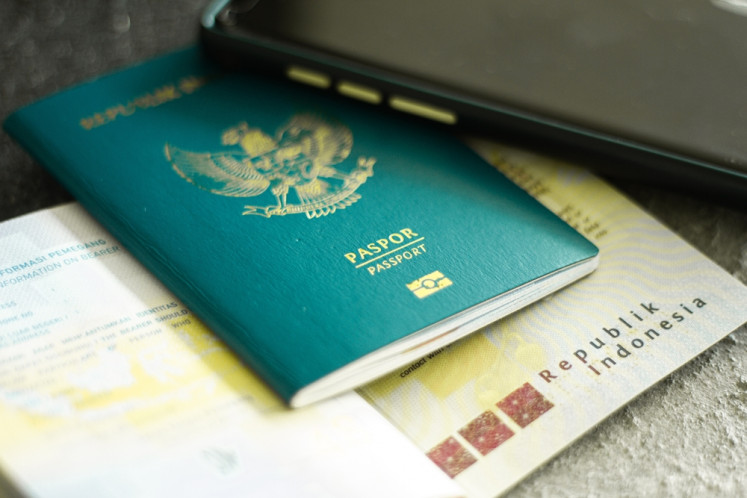FP2020 calls for universal access to family planning services
Family planning has gained huge momentum. Yet big challenges remain.
Change Size
 Pills of power: Family planning empowers women and girls to take ownership of their health and future. (Courtesy of Shutterstock/9dream studio)
Pills of power: Family planning empowers women and girls to take ownership of their health and future. (Courtesy of Shutterstock/9dream studio)
M
ore women have access to family planning information and services than ever before. Yet millions of women in developing countries who want to prevent pregnancy are still not using modern contraceptives.
According to Family Planning 2020 (FPP2020), a global community set up during the 2012 London Summit on Family Planning, 314 million women and girls were using modern contraceptive methods in its 69 focus countries in July last year, including Indonesia, with 53 million new users in the last seven years and 9 million in the past year alone.
“As a result of modern contraceptive use between July 2018 and July 2019, 119 million unintended pregnancies were prevented; 21 million unsafe abortions and 134,000 maternal deaths were averted,” said FP2020 executive director Beth Schlachter.
While progress has been significant, the FP2020 initiative – which is guided by the principle that all women, no matter where they live, should have access to lifesaving contraceptives – is approaching its deadline, and its initial goal of reaching an additional 120 million women and girls has yet to be realized.
As of July 2019, there were 53 million additional users of modern contraception in the 69 FP2020 focus countries as compared to 2012, the time it was set up.
“The change we wish to have in the world is a future where all women and adolescent girls everywhere have the freedom and ability to make their own informed decisions about using modern contraception and whether or when to have children, lead healthy lives, and participate as equals in society and its development,” Schlachter said.
She was making a plenary presentation at the 10th Asia Pacific Conference on Sexual Reproductive Health and Rights (APCRASRH10) – part of a virtual conference series organized by the steering committee of APCRSHR10, UNFPA and Citizen News Service (CNS).
Achieving the FP2020 goal is a critical milestone to ensuring universal access to sexual and reproductive health services and rights by 2030, as laid out in Sustainable Development Goals 3 and 5.
Access to safe, voluntary family planning is a human right and it is central to gender equality and women’s empowerment as well as a key factor in reducing poverty.
Currently, there are 926 million women of reproductive age across the 69 FP2020 countries – 100 million more than in 2012. With this number expected to surpass 1 billion in 2025, millions more women will need vital family planning services.

Since its original FP2020 commitment in 2012, Indonesia has increased domestic investments for the program, stepping up its commitment with an increase in the budget allocation for family planning programs to around US$458 million in 2019, an increase of nearly 80 percent since 2017.
Indonesia has also integrated family planning into its national health insurance scheme and aims to expand its reach through engaging the private sector and including postpartum and post-abortion services in the scheme.
However, the ongoing pandemic is driving away people from contraceptives – with fewer people using contraceptives as health facilities have suspended some of their services and others are avoiding the facilities over fear of contracting the virus, which is a serious problem for the family planning program.
The National Population and Family Planning Board (BKKBN), the authority overseeing Indonesia’s family planning programs, disclosed that there were 1 million fewer visits to health facilities regarding contraceptive services from January to September this year than in the same period last year.
While services for some contraceptives, such as condoms, have seen an increase in the country, other methods have seen declining use, with injections showing the most notable drop at almost 1 million.
The agency's deputy for family planning and reproductive health, Eni Gustina, told The Jakarta Post earlier in November that, based on data from March to May this year, the use of contraceptives among active users also dropped 10 percent.
The decline might lead to at least 500,000 unintended pregnancies, across the country, which is home to nearly 270 million people and annually welcomes some 4.8 million births.
With many people hard hit by the economic impacts of the pandemic, unintended pregnancies would only take a bigger toll on women, both physically and psychologically.
Indonesian Institute of Sciences (LIPI) demography expert Augustina Situmorang said that such situation would have a lasting impact on both mothers and babies’ health, and in the process affect the quality of Indonesia’s future human resources at a time when the government hopes to reap benefits from the country’s productive population.
"Even without COVID-19 [...] the government has faced a lot of challenges [in promoting contraceptive use]," she said, citing rejection over religious and personal values and stigma surrounding condoms, which were commonly associated with extramarital sex.
Schlachter said a new partnership model and recommitment process were scheduled to kick off in January 2021 and run through the year.
The partnership, she added, was to be officially launched at the International Conference on Family Planning to be held in Thailand in November next year.
“It [the new model] will be a commitment-based partnership with a country-led and country-driven mandate that seeks to strengthen role of civil society (including youth) in accountability efforts and promote greater advocacy coordination and alignment,” Schlachter said.









